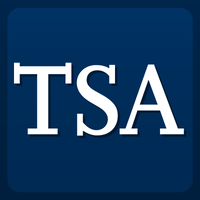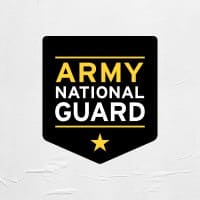Closing Date: 9th May, 2024
Description:
Summary:This position is located in the Department of Homeland Security (DHS), A Government Entity. The General Counsel, who is appointed by the President with the advice and consent of the Senate, is the Department's chief legal advisor and principal legal advisor to the Secretary of DHS and, has final authority and responsibility for legal policy determinations within the Department and its components.
Duties:
The Deputy Chief Counsel for Enforcement and Incident Management is the senior legal advisor for TSA on matters dealing with civil and criminal enforcement, international law, intelligence and analysis, cybersecurity enforcement, and incident management, within the transportation sector.
As the Deputy Chief Counsel for Enforcement and Incident Management the incumbent:
Serves as the senior legal advisor for civil enforcement, criminal law, international law, cybersecurity enforcement, and legal policy matters that arise in the course of TSA's execution of its transportation security mission, including TSA's execution of its regulatory authority and matters involving the Federal Air Marshal Service (FAMS).
Serves as the first or second line supervisor for approximately 13 attorneys and professional or support staff at TSA headquarters in Springfield, VA in the provision of legal services to TSA and DHS leadership.
Serves as the senior legal advisor for transportation incident management legal issues that arise out of TSA's primary role in managing the federal government's response to transportation security incidents that involve U.S. interests. The legal issues associated with this responsibility include advice on crisis management; the National Response Plan and associated executive branch policy; continuity of Operations and Continuity of Government; and national security law and policy. This advice must include expert knowledge of the interagency emergency decision making process at all levels of government.
Provides accurate and timely legal advice and counsel to senior management officials in TSA and the Department of Homeland Security, including includes formal and informal presentations, both orally and in writing. Represents TSA Chief Counsel office in a variety of internal and external settings to meet this responsibility.
Etablishes organizational performance metrics in accordance with TSA's mission, vision, goals, and strategic objectives. Oversees the day-to-day operations of areas within his/her responsibility, assuring conformance with TSA's strategic plan.
Participates as an executive member of the TSA Chief Counsel office leadership team, and is responsible for leading a professional staff and for achieving results in assuring that expert legal counsel and advice is provided to senior officials and to operating elements of TSA.
Promotes an equal opportunity environment by fostering fairness in selections, encouraging and recognizing achievements, ensuring fair treatment of minority group employees, and demonstrating sensitivity to the developmental needs of all employees including minority groups, women and the disabled.
Provides management oversight and direction concerning personnel, policies and programs (e.g., human resources, budget, information technology, facilities, equipment, procurement); and ensures the efficient and effective acquisition, use, distribution and disposal of office resources in compliance with applicable policies, procedures, laws and directives.
Requirements:
Conditions of Employment:
- You must be a U.S. citizen to apply for this position.
- Males born after 12/31/1959 must be registered for Selective Service.
- You must submit to a pre-employment drug test.
- You must be able to obtain/maintain a TS/SCI security clearance.
- You may be required to undergo periodic drug testing.
- You will serve a one-year probationary period unless you previously completed the probationary period in the SES.
- Selectee will be required to complete form OGE-278, Executive Personnel Financial Disclosure Form.
- You must possess a professional law degree (e.g., J.D., LL.B.) acquired through graduation for a School of Law accredited by the American Bar Association.
- You must be an active member in good standing of the Bar of a state, the District of Columbia, the Commonwealth of Puerto Rico, or a territory of the United States.
- Applying to this announcement certifies that you give permission for DHS to share your application with others in DHS for similar positions.
Qualifications:
As a basic requirement for entry into the SES, applicants must provide evidence of progressively responsible executive leadership and supervisory experience that is indicative of senior executive level management capability and directly related to the skills and abilities outlined under Executive Core Qualifications and Technical Qualifications listed below. Typically, experience of this nature will have been gained at or above the GS-14/15 grade level in the federal service or its equivalent in the private sector. As such, your resume should demonstrate that you have the knowledge, skills, and abilities to successfully fulfill responsibilities inherent in most SES positions such as:
- Directing the work of an organizational unit;
- Ensuring the success of one or more specific major programs or projects;
- Monitoring progress toward strategic organizational goals, evaluating organizational performance and taking action to improve performance;
- Supervising the work of employees; and
- Exercising important policymaking, policy determining, or other executive functions.
Executive Core Qualifications (ECQs):
Unless you are currently serving under a Career Senior Executive Service (SES) appointment, eligible for reinstatement into the SES, or a SES Candidate Development Program (CDP) graduate, you must address the ECQs. Your narrative must address each ECQ separately and demonstrate the underlying competencies in the narrative. Examples should be clear, concise, and emphasize your level of responsibilities; the scope and complexity of the programs, activities, or services you managed; program accomplishments; policy initiatives undertaken; level of contacts; the sensitivity and criticality of the issues you addressed; and the results of your actions. You should use action oriented leadership words to describe your experience and accomplishments and quantify your experience wherever possible to demonstrate your accomplishments (e.g., number of employees supervised; size of budget managed; amount of money saved, etc.).
Applicants should use the Challenge, Context, Action and Results (CCAR) model below when responding to each ECQ:
- CHALLENGE: Describe a specific problem or goal.
- CONTEXT: Describe individuals and groups you worked with, and/or the environment in which you worked, to address a particular challenge (e.g., clients, members of Congress, shrinking budget, low morale).
- ACTION: Describe the specific actions you took to address a challenge.
- RESULT: Describe specific examples of measures/outcomes that had impact on the organization. These accomplishments demonstrate the quality and effectiveness of your leadership skills.
ECQ 1 - Leading Change. This core qualification involves the ability to bring about strategic change, both within and outside the organization, to meet organizational goals. Inherent to this ECQ is the ability to establish an organizational vision and to implement it in a continuously changing environment. Leadership Competencies: Creativity & Innovation, External Awareness, Flexibility, Resilience, Strategic Thinking, Vision.
ECQ 2 - Leading People. This core qualification involves the ability to lead people toward meeting the organization's vision, mission, and goals. Inherent to this ECQ is the ability to provide an inclusive workplace that fosters the development of others, facilitates cooperation and teamwork, and supports constructive resolution of conflicts. Leadership Competencies: Conflict Management, Leveraging Diversity, Developing Others, Team Building.
ECQ 3 - Results Driven. This core qualification involves the ability to meet organizational goals and customer expectations. Inherent to this ECQ is the ability to make decisions that produce high-quality results by applying technical knowledge, analyzing problems, and calculating risks. Leadership Competencies: Accountability, Customer Service, Decisiveness, Entrepreneurship, P



